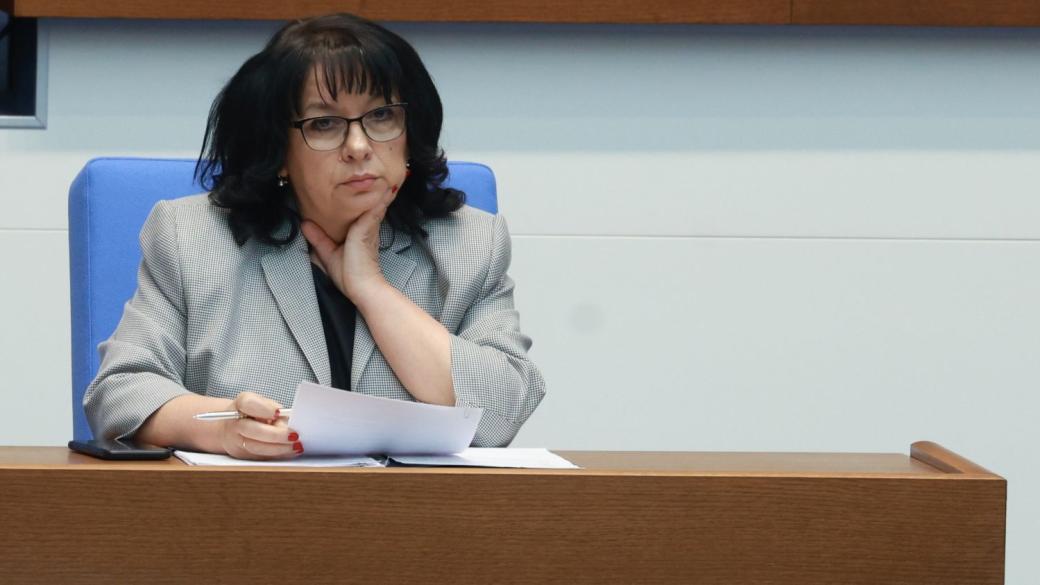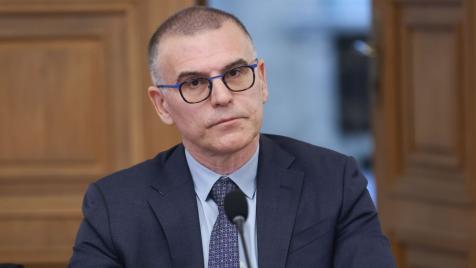Bulgaria may be denied eurozone admission if it rushes with convergence report
According to economists, the country cannot continue postponing its eurozone entry indefinitely
Temenuzhka Petkova, Minister of Finance:

© ECONOMIC.BG / BTA
Bulgaria will submit a request for an extraordinary convergence report on its readiness to adopt the euro as soon as possible, but this should be done only after it meets all the criteria. If the government rushes, the country may not receive the green light from Brussels. This is what Finance Minister Temenuzhka Petkova explained during Friday's parliamentary Q&A session.
Martin Dimitrov, MP from "We Continue the Change - Democratic Bulgaria", asked the minister whether Bulgaria wanted an exception to be made for it under the criteria like it had been done with Croatia upon its accession to the eurozone.
We will submit a request for a convergent report as soon as possible, but we must meet the criteria. Before we meet them, the risk of receiving a negative response is high," Petkova warned.
She reminded the MPs that the "exclusion" of countries in the assessment of the inflation criteria is made by a decision of the European Commission (EC) and the European Central Bank (ECB). This can be based on two conditions: the inflation rate in the respective country must be significantly below the average for the euro area and the inflation must be caused by country-specific exceptional factors that cannot be attributed to the euro area.
Petkova pointed out that Bulgaria should first address Budget 2025 and approve its structural and fiscal plan, as this "guarantees the sustainability that we need to show."
Our European partners support Bulgaria. They welcome the fact that we have a regular government. Expectations for us are high, and I hope that with joint efforts we can deal with this situation," Petkova summarized.
Earlier this month, it became clear that Bulgaria was “on the verge” of meeting the inflation criterion. In December 2024, the country’s average annual inflation rate was just 0.1 percentage points above the eurozone threshold.
This has raised expectations that Bulgaria may soon request an extraordinary report from the EC and the ECB. These hopes were also supported by a statement of Lyudmila Petkova, former interim finance minister, that there was a chance for a report request by the end of January.
However, in her first days in office, Temenuzhka Petkova dashed these expectations, repeatedly stating that this would only happen when all criteria were fully met.
The eurozone window is closing
In recent days, several economists have begun to warn that there is a real chance that Bulgaria will not fulfil its dream of adopting the euro if it does not request a report in the coming months.
In an interview with Bulgarian National Radio this morning, Nikola Yankov, former Deputy Minister of Economy, warned that "the window for the eurozone is closing."
We have a historic chance. Maybe this window will close this year. The political landscape in Europe is changing. Populist parties are coming to power, and their ideology is rather anti-European and not friendly toward countries like Bulgaria. Our integration could be permanently threatened. This postponement could end up being the last one, so to say," Yankov said.
According to him, Bulgaria meets the criteria for the eurozone and if accepted, this would "permanently anchor it geopolitically in the orbit of Western democracies."
According to the chief economist of the Institute for Market Economics, Latchezar Bogdanov, it would not be an issue to delay the request by one or two months, even though Bulgaria could have done it already in January.
If Bulgaria submits a request for a report in the next two months, it could be ready by mid-year. If the opinion is positive, the country could still enter the eurozone in early 2026. So far, there is no problem for me," Bogdanov said in an interview with Free Europe.
However, he warned that there are expectations of accelerating inflation not only in Bulgaria but also in Europe.
There is a high probability that we will meet the inflation criterion in January, February and March. Yes, however, there is also a risk that if certain product prices jump higher now, we will not cover the criterion ever again," concluded Bogdanov.
Translated by Tzvetozar Vincent Iolov

 Simona Gotsova
Simona Gotsova 


